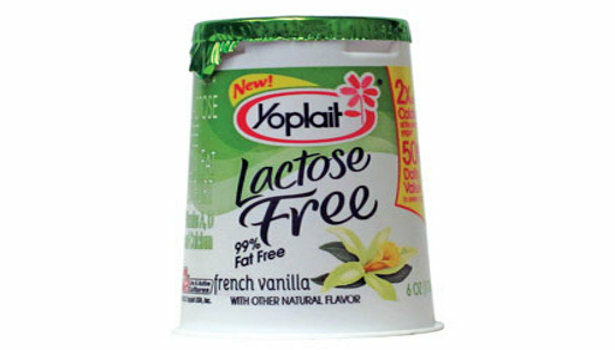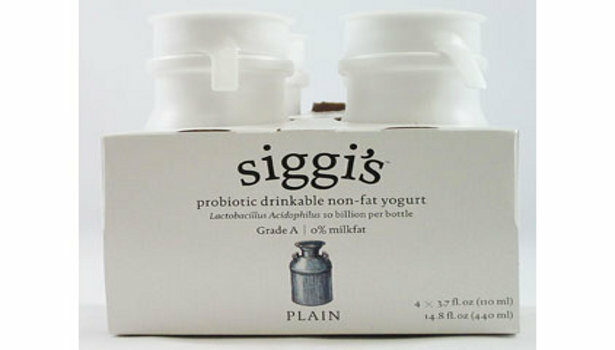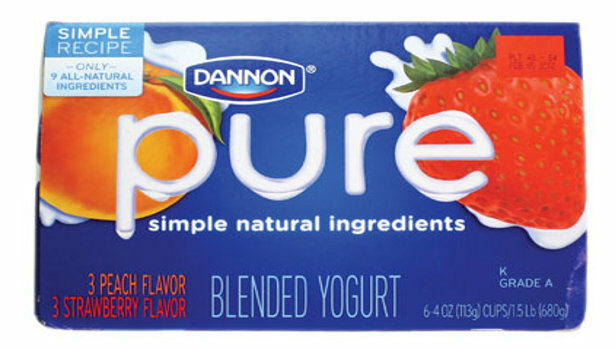This gold rush helped unleash a stampede of new entrants, so much so that Greek-style yogurts accounted for nearly 26% of all new yogurt introductions in the U.S. in 2011 vs. around 9% in 2008, according to Datamonitor’s Product Launch Analytics database of new products.
The Greek yogurt boom has had an echo, turning the yogurt market into a mini United Nations, as other thicker, European-style yogurts join in. Skyr Corp.’s Siggi’s Icelandic Style Skyr Strained Non-Fat Yogurt is high in protein and also low in sugar, with agave nectar providing a light sweetness.
Two other recent yogurt launches give a nod to the Greek yogurt trend without going “Greek.” Ehrmann USA’s Bavarian Lowfat Yogurt provides “all natural Bavarian goodness,” with a yogurt that uses milk from Vermont and is said to be creamier and richer tasting than typical American yogurt. Emmi Swiss Yogurt from Emmi Roth USA also touts increased protein content and less sugar than regular yogurts. Both Ehrmann and Emmi are rBST-free, alluding to the absence of growth hormones—something that could resonate well as American yogurt consumers become more discerning.
The Germans and the Swiss definitely know a thing or two about yogurt. According to Datamonitor, the average German consumed $31 worth of yogurt per year as of 2010, compared to just $16.80 of yogurt for the average American. The Swiss actually make the Germans look like laggards, snapping up $83.50 of yogurt per person, per year. With American yogurt consumption just one fifth that of yogurt-crazy Switzerland, it would be an understatement to say there is plenty of room for growth in the U.S.
However, getting from here to there will not happen overnight, and with the “first-mover advantage” long gone, later entrants will be hard-pressed to stand out. Offering novel flavors is one approach, while another is to focus on untapped niches.
Alpina USA’s Revive Greek Yogurt goes the flavor route with a four-flavor line, each with a different custom-designed granola mix-in: Antioxidant, Superfoods, Tropical and Chai Spices. Each granola version features a seed, nut and grain component, and Revive is one of the first Greek yogurts to use goji berries as a mix-in ingredient.
Plum Organics Inc. takes the second path, targeting kids aged 6 months and up with its new Organic Baby Food Greek Yogurt. Packed in stand-up squeeze pouches, the line comes in novel fruit and vegetable blends, such as Green Bean Pear and Cherry Sweet Corn. Aimed at a slightly older crowd is Wallaby Organic Joey Yogurt, an Australian-style yogurt that is blended smooth with no fruit pieces, yet is loaded with protein, calcium and vitamin D, plus live probiotic cultures.
Another way to stand out is to focus even more strongly on health credentials. That’s the road taken by Springfield Creamery’s Nancy’s Organic Probiotic Greek Yogurt, a new launch touting 6 billion live probiotics per serving. Naturally thick and creamy, the yogurt contains 22g of protein per serving and is made with local, organic milk from pasture-raised cows.
The origin of milk used for most yogurts is rarely identified, but due to its thicker texture, Greek yogurt is made with up to three times as much milk as standard yogurt, raising the odds that the origin and purity of milk will matter at some point. Seemingly on cue, some new fluid milk products are touting the source of milk from grass- or pasture-fed cows.
Dannon’s new Pure Blended Yogurt acknowledges the trend with its use of only “simple, natural ingredients.” Dannon actually quantifies how “simple” its formulation is, printing the number of ingredients on the front of each package. The ingredient count ranges from seven to nine ingredients, depending upon the variety.
Another growth niche comes from yogurts aimed at lactose-intolerant consumers. While the lactose-free food trend is nowhere near as active as the gluten-free segment, significant numbers of consumers are lactose intolerant. Industry sources estimate as many as 15% of all Americans might be lactose intolerant—a huge potential market for products like new Yoplait Lactose Free 99% Fat Free Yogurt.
Allergy-sensitive consumers have other alternatives outside of lactose-free yogurts. Hain Celestial Group Inc.’s Almond Dream Non-Dairy Yogurt is made from real almonds, yet contains live and active cultures and is rich in calcium. Non-dairy and free of lactose, soy and gluten, Almond Dream checks all of the right “free from” boxes. Turtle Mountain’s new So Delicious Cultured Coconut Milk Yogurt is a dairy- and soy-free alternative, one with calcium, pre- and probiotics and medium-chain fatty acids, the latter from coconut.
Expanding Greek yogurt into new areas is another way to keep the party going. Ciao Bella Gelato Inc.’s new Adonia Greek Frozen Yogurt leverages Greek yogurt’s health credentials in the freezer with a formulation boasting 9g of protein per serving, six live and active culture strains, and 130 calories per serving. Several other Greek-style frozen yogurts recently hit the market, and more are certainly on the way.
All of the attention is likely to revitalize frozen yogurts. Sensing an opportunity, the TCBY brand is giving supermarkets another run with a licensed line of frozen yogurts manufactured by Spring Creek Holdings. In research conducted pre-launch, Spring Creek found consumers were disappointed in the frozen selection offered by many retailers, with a lack of variety in healthier frozen yogurt options. If that research is on target, it could be good news for TCBY, Adonia and others.
Frozen novelties are yet another growth opportunity. Adonia offers Blueberry + Vanilla and Peach + Vanilla frozen treats, while Apollo Food Group launched Yasso Frozen Greek Yogurt Bars in 2011. This year promises more with Unilever’s new Yosicle sub-brand to its Popsicle lineup featuring three new novelties: Torpedo, Layerz and Duos.
For now, at least, the Greek yogurt trend has not had the same impact on yogurt drinks as it has had on cup yogurts. Significant launches of late include Stonyfield Farm’s Oikos Organic Drinkable Greek Lowfat Yogurt, claiming to have 50% more protein than traditional smoothies and offered in Honey Vanilla and Pomegranate Berry flavors. Siggi’s Probiotic Drinkable Non-Fat Yogurt contains milk from grass-fed cows and touts an especially high concentration (10 billion per bottle) of Lactobacillus acidophilus probiotic cultures.
Whether these products can carve out a significant part of the market is unclear. Even so, the future is bright—if yogurt products of all types can persuade consumers to buy in order to improve digestive health, for instance. Datamonitor reports that 88% of U.S. consumers are interested in foods and drinks that improve digestive health, but only 40% of Americans are buying products for this purpose right now. pf
THE INBOX:
|
|
For daily industry news updates, see the homepages of www.PreparedFoods.com and www.NutraSolutions.com. *As Sara Lee Corp. becomes two publicly held companies, its International Coffee and Tea Co. will be named D.E Master Blenders 1753. * Kraft Foods Inc. announced its new global snacks company will be named Mondelez International Inc. * Fuchs North America launched a new website—www.fuchsna.com. * Cargill Inc. announced the formation of a new business unit, Cargill Specialty Asia. * Rich Products Corp. acquired Canadian frozen dessert and ice cream maker Dorgel and Elistan Foods. * Tate & Lyle PLC launched www.yourdrinksolutions.com, a dedicated site for beverage manufacturers. * TreeHouse Foods Inc. agreed to buy Naturally Fresh Inc. * Naturex USA Inc. acquired Valentine, an Indian company specializing in the production of fruit and vegetable powders and natural colors for the food and beverage industry. * Nielson-massey Vanillas said it achieved Safe Quality Food Certification 2000. * FMC Corp. opened its new Singapore Technical Center in Singapore Science Park 2. * Cott Beverages Corp. acquired soft drinks company Sangs. * SunOpta Ingredients Group announced that an independent panel of experts has determined that SunOpta’s rice hull fiber is generally recognized as safe (GRAS) for use in food and beverages. * PGP International Inc. announced it has been awarded Good Manufacturing Practices (GMP) for Sport registration from NSF International. * Nestlé is expanding its research and development center in Singapore. * Solae LLC, a joint venture between DuPont and Bunge and a world leader in soy ingredients, has been recognized by the Ethisphere Institute as one of the 2012 World’s Most Ethical Companies. * Mt. Capra Products CEO Frank Stout has turned over the reins of company president to his son, Joseph. |


